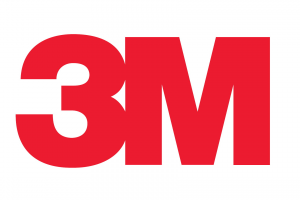The new Customs Code and the amendment of the VAT Act were signed by the President
29.07.2016Company: PricewaterhouseCoopers Česká republika, s.r.o.
On Wednesday27 July 2016, the Czech president signed the draft of the new Customs Code and the accompanying acts, mainly the amendment of the Czech VAT Act, using a wording approved by the Senate. The announcement in the collection of laws (“Sbírkazákonů“) will acquire their effectiveness upon publication, whereas some of the provisions have deferred effectiveness. We expect that it should happen on Friday 29 July 2016.
Mitigation of sanctions assessed in connection with the control statement
The amendment of the Czech VAT Act mitigates the sanctions for non-submission of the control statement. From now, provided the control statement was subsequently submitted without receipt of the appeal from the tax authorities and at the same time there was no any other delay in submission of the control statement, the fine amounting to CZK 1,000 assessed for non-submission of the control statement will be automatically waived. In case of stricter sanctions amounting to CZK 10,000, 30,000 or 50,000, the VAT payer will be allowed to apply for a partial or full waiver. A request for a waiver has to be submitted not later than 3 months from the legal enforcement of the payment assessment. The tax officer will decide about a partial or full waiver provided the non-submission can be sufficiently explained with respect to the given circumstances. The good news for VAT payers is the fact that the fines assessed before the effectiveness of this amendment can be waived as well.
Reverse charge for non-established companies
The amendment of the Czech VAT Act also introduces a reverse charge in case of supplies of goods with place of supply in the Czech Republic performed by a non-established person that is not registered for VAT purposes in the Czech Republic to the VAT payer registered in the Czech Republic. In such a case, the recipient of the supply is the person liable to account for output VAT and, at the same time, will be entitled to claim the input VAT provided the conditions are met. It will not be possible to apply the reverse charge in cases when a non-established person is already registered for VAT in the Czech Republic. Provided the legal conditions are met, it will be allowed during the transition period of six months after the amendment comes into force to apply to VAT deregistration. Once the VAT registration is cancelled, the company will use the reverse charge for supplies of goods with place of supply in the Czech Republic. Application of this reverse-charge regime may be beneficial for the companies, however, it is necessary to conduct an analysis of all possible consequences, e.g. impact on cash-flow of the company. After deregistration, the company will not be allowed to claim the input VAT from the local purchases via the VAT return, however, it will only be allowed to apply via the VAT refund procedure.
Tax document in case of export of goods
Newly, the commercial invoice will be used as the tax document in cases of export of goods. The single administrative document for export will no longer be used as the tax document, however, it will serve as documentation proving that the goods left the territory of the European Union (EU).
Change of a territorial jurisdiction for non-established companies
Companies, which are not seated, but VAT registered in the Czech Republic, will newly fall under the jurisdiction of the Tax Office for Moravian-Silesian region (currently, they are under the jurisdiction of the Tax Office for Prague 1). The currently competent Tax Office will decide within 12 months after the amendment comes into force about the day from which the relevant Tax Office will be effectively changed. VAT payers will receive a decision of the tax office. The provision about the change of the territorial jurisdiction will come into force on the first day of second month after the amendment is published in the collection of laws, i.e. most likely on 1 September 2016.
The new Customs Code changes the classification of special customs regimes
After more than 22 years, the Customs Code of the EU and its implementing regulations was amended with effect from 1 May 2016. The new code brings extensive changes in the areas of the computerization of customs procedures, special customs procedures and the confirmation of concrete benefits for the holders of certain economic authorizations.
One of the most important changes is the new classification of customs-approved treatments and special customs regimes. The new code waives certain customs procedures (e.g. the customs warehousing type D, active inward processing in the drawback system and the free zone type II) while at the same time rearranging some special customs regimes, such as inward and outward processing and processing under customs surveillance.
Also, the interpretation of the term exporter was unified. An entity that has its headquarters outside the EU cannot be listed in box 2 of the customs declaration. At the same time, the exporter may not be identical to the entity on whose behalf the customs declaration is made. The exporter can therefore only be an entity based in the EU that at the time of filing the customs declaration has an agreement with the consignee of the goods in a third country, or at least is competent to decide about the carriage of the goods to their destination in a third country.
We also have to keep in mind the change of the deadlines for binding tariff information, which was recently reduced to three years. Any binding tariff information issued before 1 May 2016 shall remain in effect for six years in accordance with the previous legislation.
If you have any questions or interested in our services, please do not hesitate to contact Martin Diviš.
Martin Diviš
partner Tax and legal services
251 152 574
Tags: Law | Finance |







